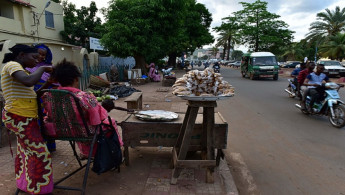Hundreds protest Mali election results marred by fraud claims
More than a thousand supporters of Malian opposition leader Soumaila Cisse gathered in the capital Bamako on Saturday after he lost a presidential run-off to President Ibrahim Boubacar Keita amid accusations of fraud.
Keita was re-elected with 67.17 percent of Sunday's vote against 32.83 percent for challenger and former finance minister Cisse.
In Bamako, the protesters played vuvuzelas and displayed their candidate's campaign posters, watched by dozens of police officers in riot gear, AFP journalists witnessed.
Cisse, who said Friday he had won the poll and dismissed the official results as "parody and lies", joined his supporters mid-morning.
"If you exclude the results coming from proven ballot-box stuffing in many polling stations as well as far-fetched results in many northern towns, I won the presidential election with 51.75 percent of the vote," he told reporters on Friday.
His campaign team said some of the results clearly showed fraud had occurred -- such as voters casting their ballots in just 40 seconds in some polling stations, while in others 100 percent of the votes were cast in favour of Keita, according to the team's calculations.
"The power in place is illegal. This time it is our turn, we have won, we will continue to march until the government resigns," said Fatoumata Konate, a member of the main opposition party.
Cisse, 68, said he had filed an appeal to the country's top court for some of the results to be cancelled.
Observer missions sent by the European Union and the African Union (AU), however, have said the election was not badly impaired.
The three main opposition candidates had mounted a last-ditch legal challenge to the first-round result, but their petition was rejected by the Constitutional Court.
Keita, 73, will take office on September 4, with hopes he can strengthen a 2015 peace accord between the government, government-allied groups and former Tuareg rebels.
Mali, a landlocked nation home to at least 20 ethnic groups where the majority of people live on less than $2 (1.76 euros) a day, has battled jihadist attacks and intercommunal violence for years.
Islamist attacks have spread from the north to the centre and south of the vast country and spilled into neighbouring Burkina Faso and Niger, often inflaming communal conflicts.





 Follow the Middle East's top stories in English at The New Arab on Google News
Follow the Middle East's top stories in English at The New Arab on Google News

![Israeli forces ordered bombed Gaza's Jabalia, ordering residents to leave [Getty]](/sites/default/files/styles/image_330x185/public/2176418030.jpeg?h=a5f2f23a&itok=_YGZaP1z)
